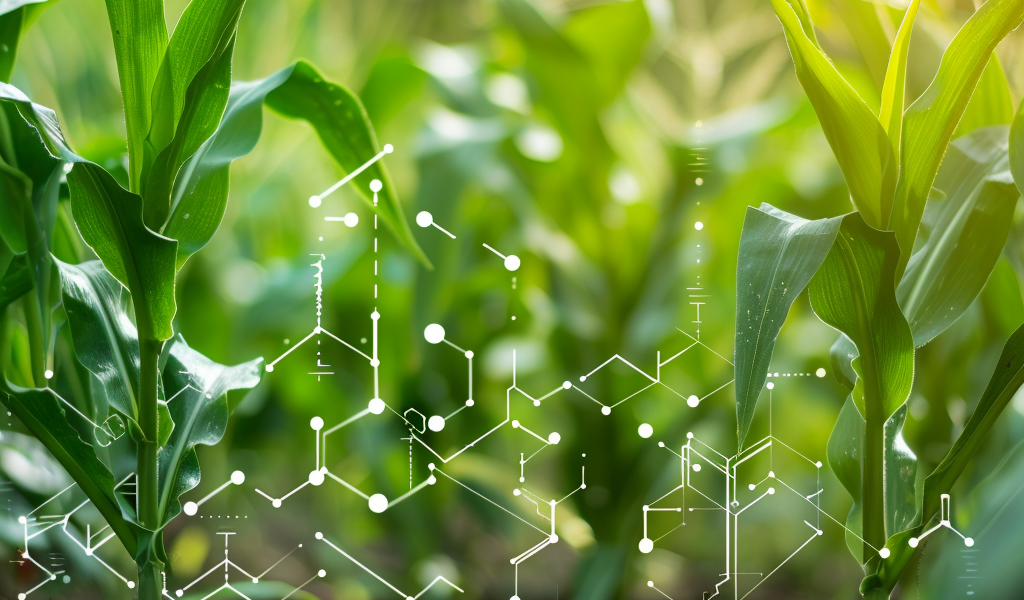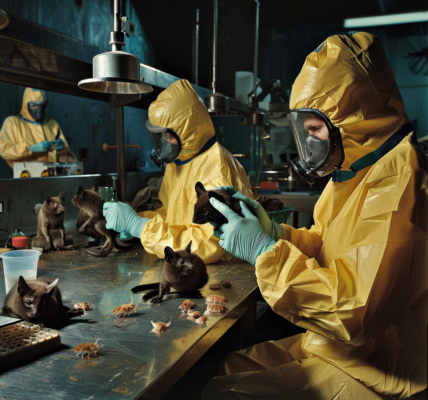Groundbreaking Research in Biochemistry Paves the Way for Sustainable Food Production
In a significant advancement in agricultural science, biochemists from Utah State University (USU) have reported findings that could revolutionize food production globally. Funded by the Gates Foundation, this research aims to tackle the pressing global food challenge by simplifying the genetic transfer of nitrogen fixation to essential food crops.
Food productivity heavily relies on the availability of fertilizers, particularly nitrogen, which is a crucial nutrient for plant growth. According to Lance Seefeldt, a professor and head of the Department of Chemistry and Biochemistry at USU, “We need nitrogen to survive, but we can’t take it in from the air. We get nitrogen from the protein in our food.” This dependency on nitrogen fertilizers has been a longstanding issue in agriculture.
The Haber-Bosch process, developed over a century ago, allowed for the industrial-scale conversion of atmospheric nitrogen into a usable form for fertilizers, resulting in a dramatic increase in global food production. However, many regions, especially in Sub-Saharan Africa, face significant challenges in accessing and distributing fertilizers, which hampers their agricultural productivity.
Since 2019, Seefeldt, alongside USU Senior Scientist Zhi-Yong Yang, has been collaborating with a team from Spain and the United States to innovate a solution. Their project focuses on re-engineering the biology of cereal crops such as corn and rice to enable these plants to fix nitrogen independently using sunlight, thereby reducing the need for external fertilizers.
In a recent publication in the Proceedings of the National Academy of Sciences (PNAS), the research team, led by Luis Rubio from the Polytechnic University of Madrid, unveiled a groundbreaking discovery. They identified a simplified pathway requiring a minimum of seven genes that enable plant cells to produce the enzyme necessary for converting atmospheric nitrogen (N2) into a usable form of fertilizer.
Yang elaborates on the implications of their findings, stating, “The goal is to place genes into the crops’ mitochondria and chloroplasts, enabling them to generate sufficient energy to drive nitrogen fixation. This is a pretty cool piece of evidence. Essentially, these staple caloric crops – rice, corn, potatoes – could have built-in fertilizer.”
The team initially hypothesized that nine genes were necessary for nitrogen fixation and worked to identify the combinations essential for the process. However, their research led to the unexpected finding of a simpler genetic framework, which could significantly enhance the efficiency of nitrogen fixation in these crops.
This innovative approach not only has the potential to improve food security in regions lacking fertilizer access but also aligns with global sustainability goals by reducing dependency on chemical fertilizers. As the world grapples with the challenges of feeding a growing population, this research represents a beacon of hope for sustainable agricultural practices.
With the ongoing collaboration between USU and international partners, the future of food production may soon see crops that can thrive in nutrient-poor soils, ultimately contributing to a more resilient global food system. As researchers continue to explore the genetic intricacies of nitrogen fixation, the agricultural landscape may be on the brink of a transformative shift.
The implications of this research extend beyond just agricultural productivity; they touch on economic stability, environmental sustainability, and food security for millions around the world. By harnessing the power of genetic engineering and biochemistry, scientists are paving the way for a more sustainable future in food production.





